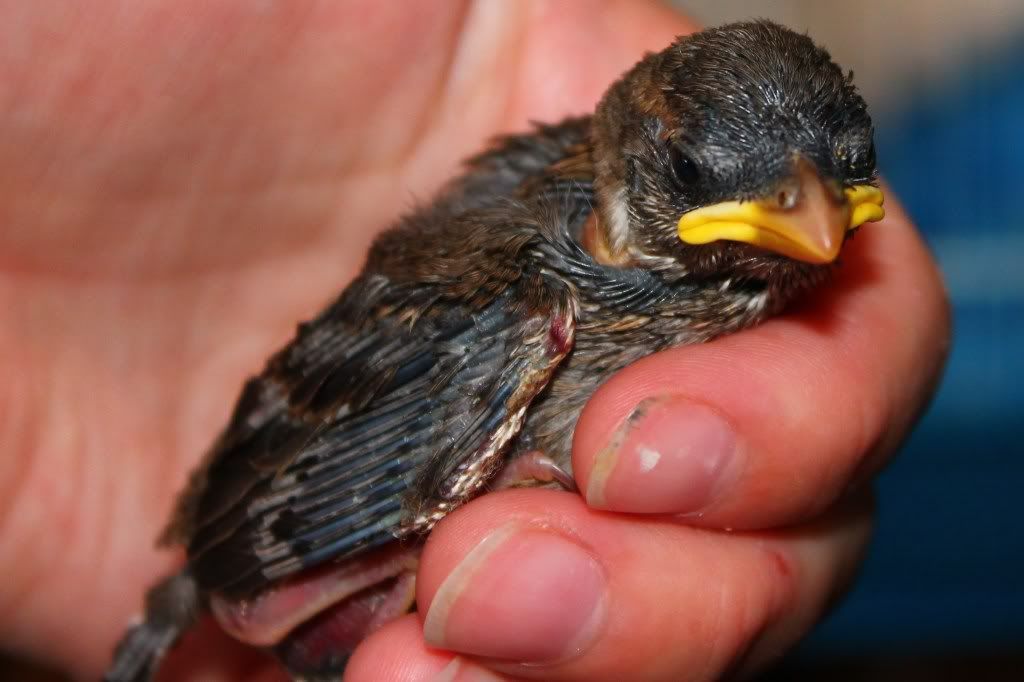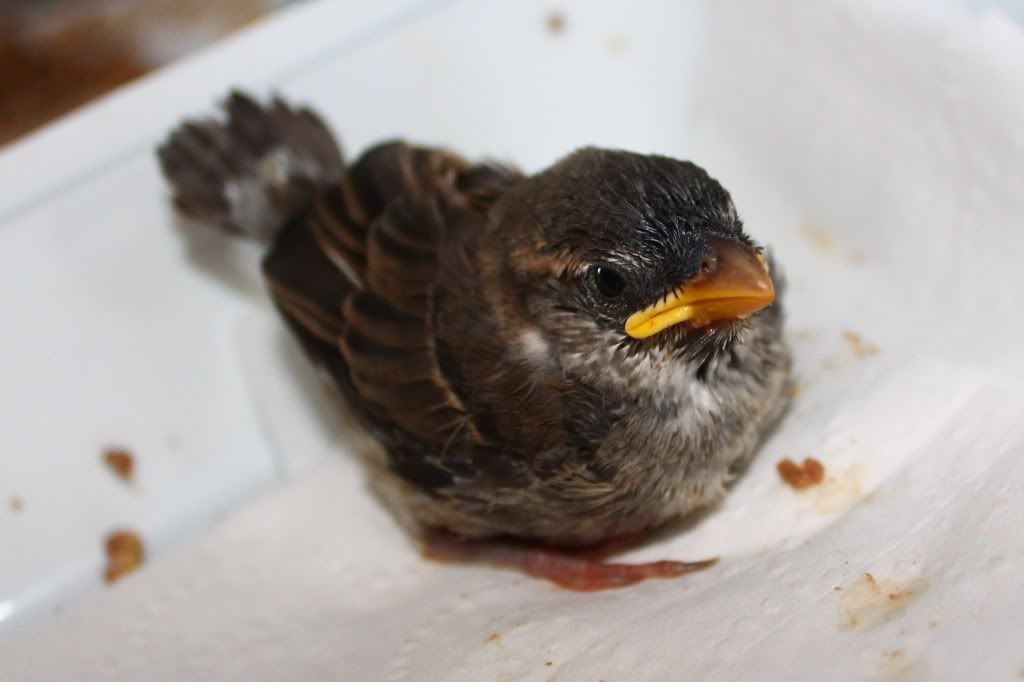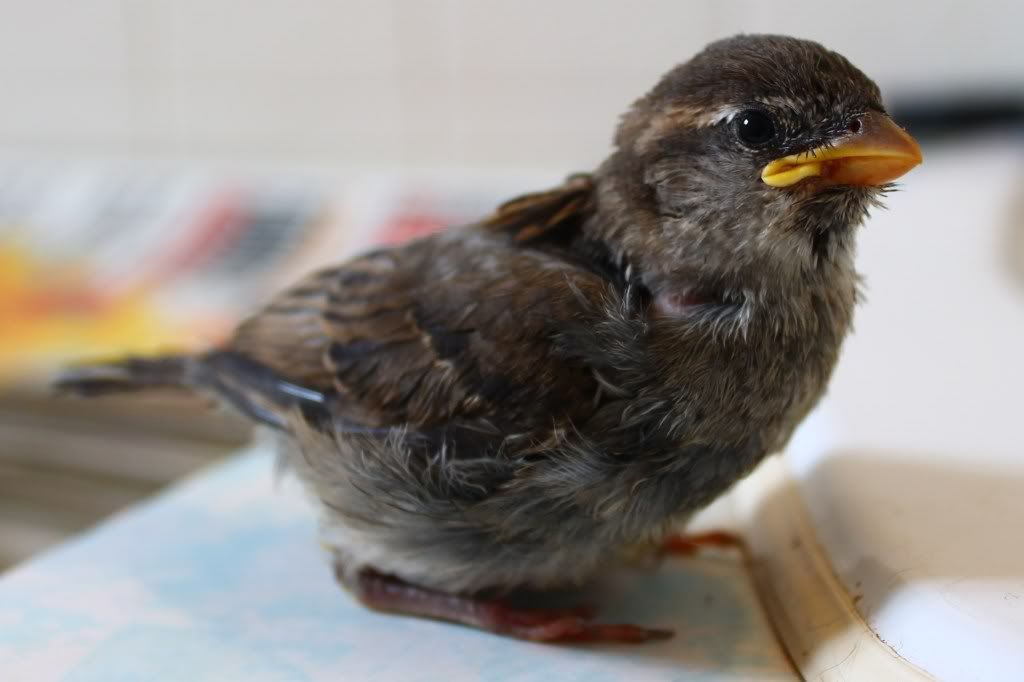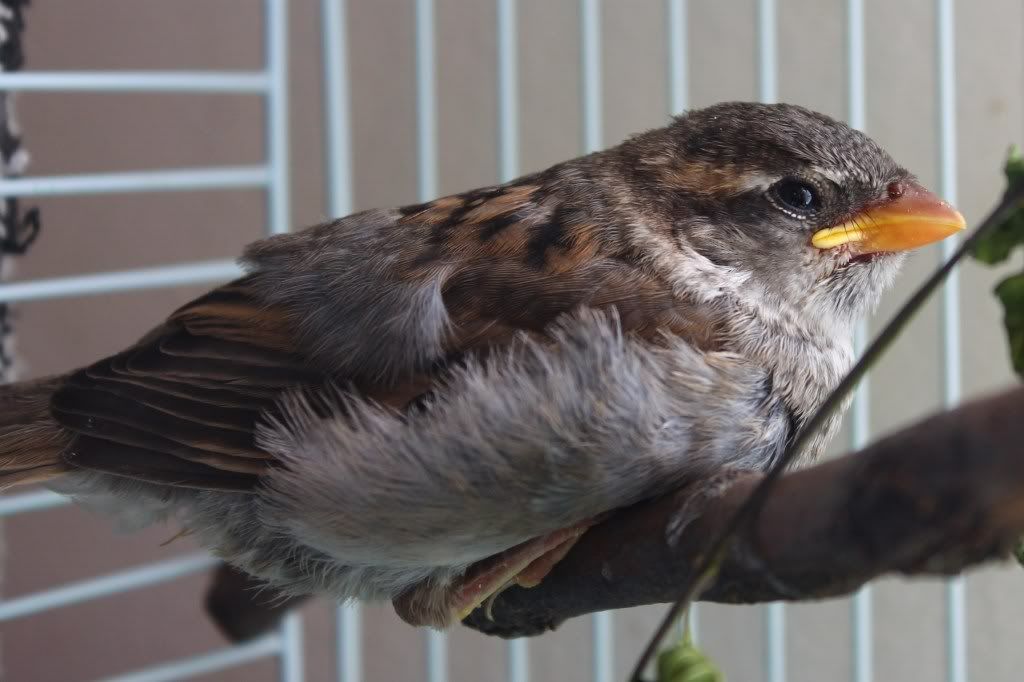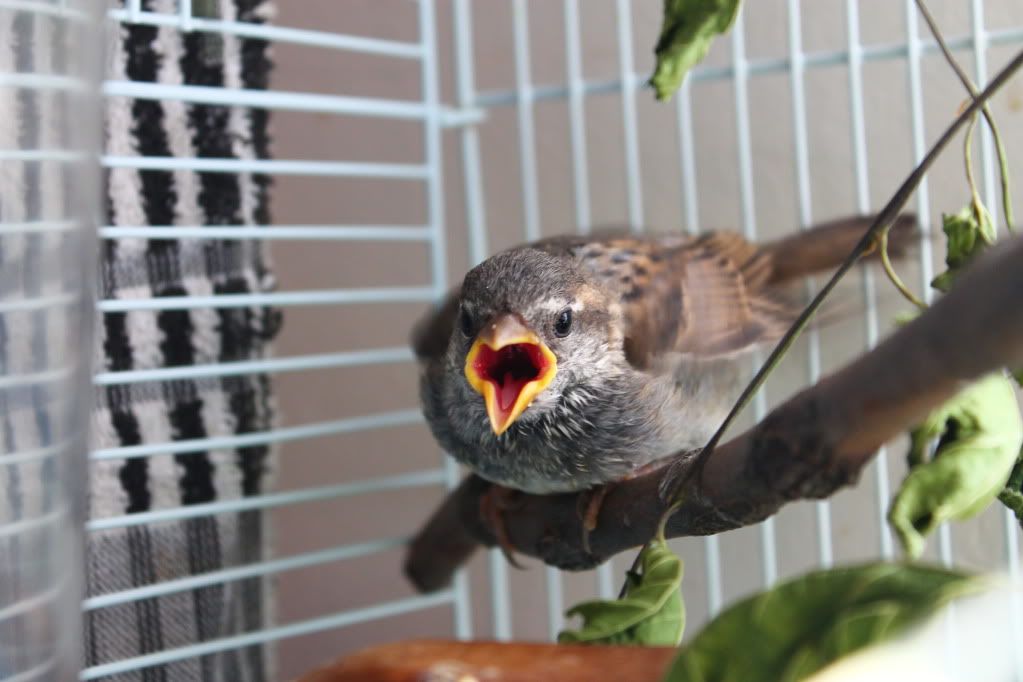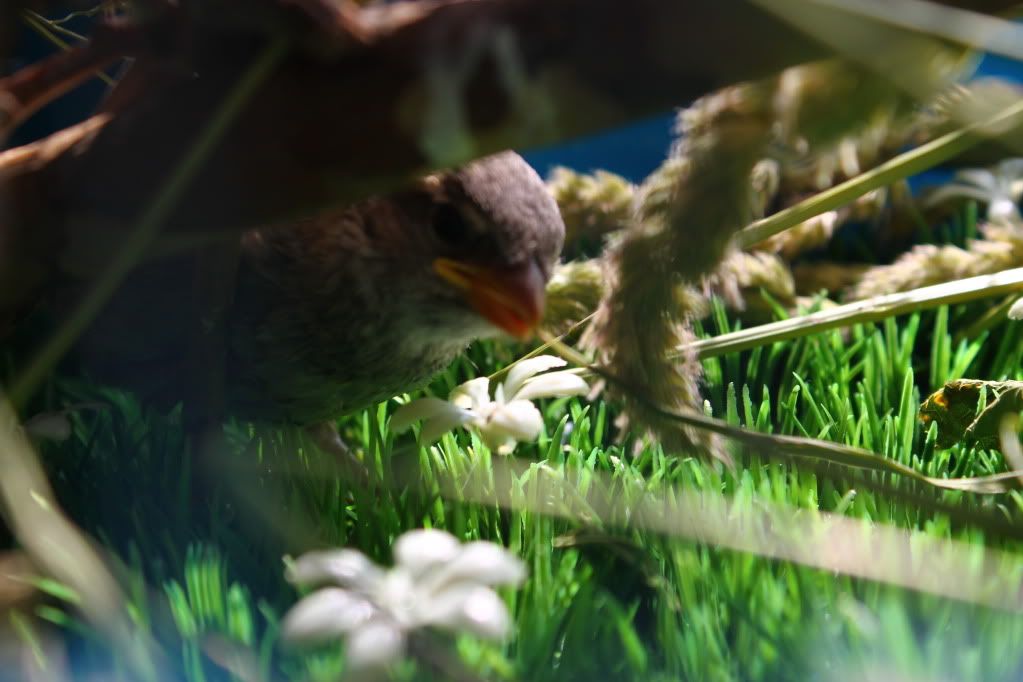mine is around 3-4 weeks old by now, he is flying on his own but he is just starting to eat on his own. ive had him since 7 days old. they learn to fly before they learn to eat on their own. you can start putting millet in his cage around 2 weeks old as they will start to investigate it more at that age and may start eating it. if you plan on releasing, you need to make their enclosure as close as possible to what they would have in the wild. bring in natural leaved branches from bird safe trees. have them able to hide in the leaves for safety. place fake grass mats at the bottom of the cage, when they get older you can put live meal worms down in the grass for them to find for themselves and forage for, this is very important as they will do this in the wild. you will need to let them out daily to fly in a small room. when the time comes close for them to be released you will want to move their cage outside so they can acclimate to the outdoor world and make friends with the wild birds. leave the door open once theyre ready. leave the cage outside, so they can go back to it if they arent ready, always keep fresh food and water in it. this will give them a good start in case they are not set to leave their "home" yet and could get an easy meal until they learn the ropes of the wild. do not handle them any more than necessary. place things they would find in the wild in their cage such as rocks and branches and even watch the wild sparrows outside. observe carefully what they eat. if you can, bring some of those foods into the cage for them. i have seeded grass in mine and dandelions will work as well. its not an easy job. when theyre young they will need to be fed very very often.
if yours are not feathered yet you will want to use aspen bedding until they are feathered and perching on their own. this will help them keep warm. if theyre unfeathered they will need a heat source up until the point of being feathered. the temperature will decrease as they feather out.
you can offer a toy or two, but not too many as they are not going to be pets.
heres some quick photos of my guy... Buddy
day i found him
few days later
2 weeks old
3 weeks old
foraging in grass
and photos from 2 days ago at 3.5 weeks old
even at this stage he is too young to be released, i will have him for at least another month to be sure he is eating completely on his own and foraging completely on his own. he needs to be adjusted to the outdoors and he needs to get used to the weather outdoors too. never place them in the hot sun, try to place the outdoor cage in the shade outside but do give them shelter on part of the cage so they can get out of the rain and wind, cover the side of the cage where the wind comes most.

